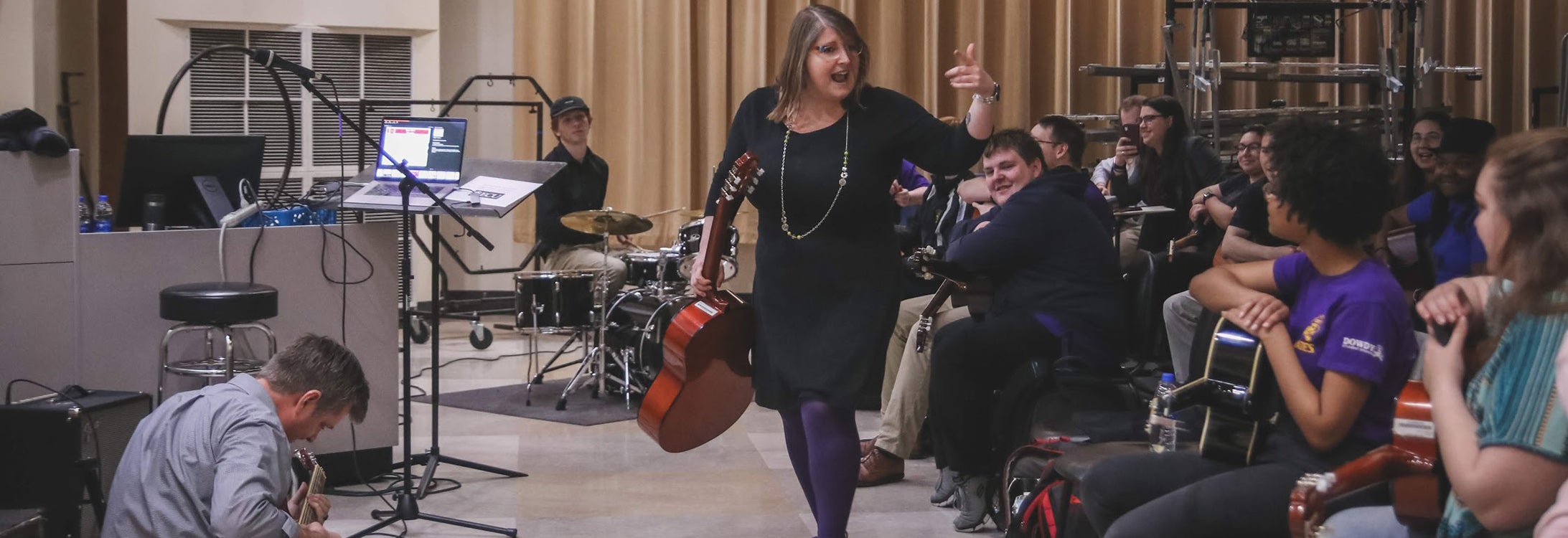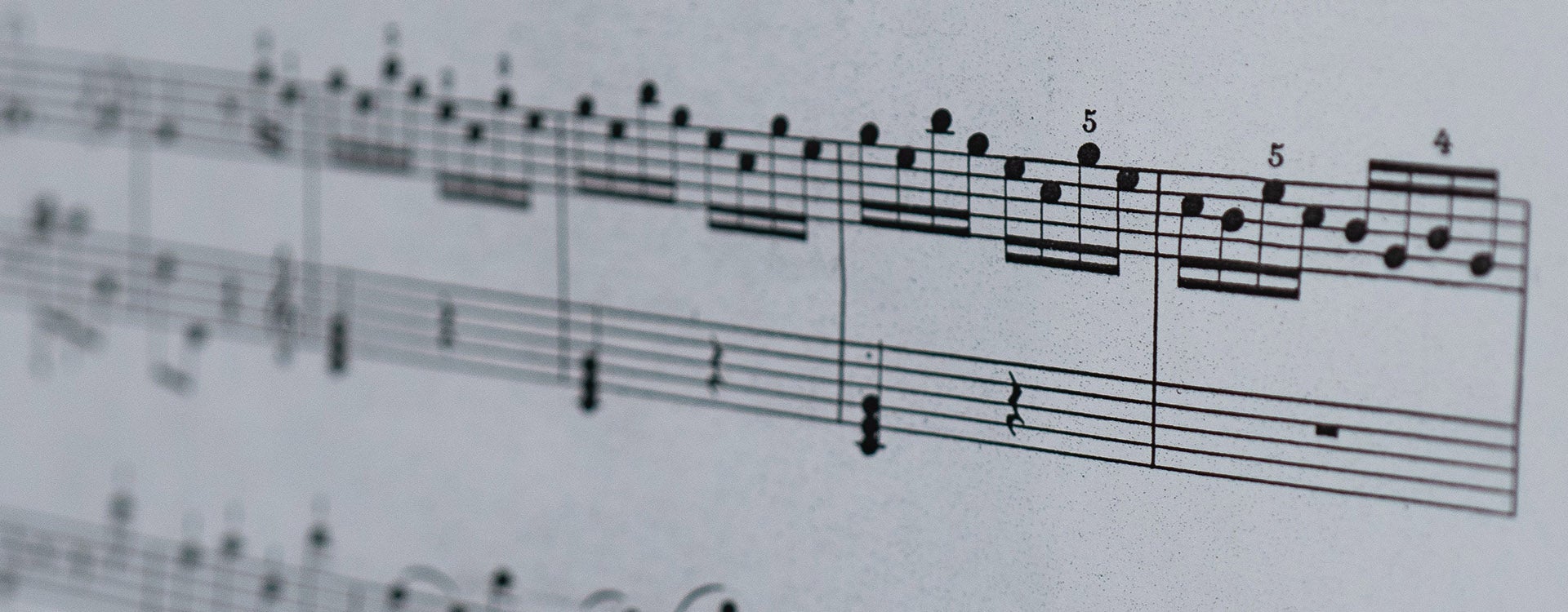MAKING MUSIC
Nationwide study reveals mental health needs of music students
Rigorous rehearsal schedules combined with heavy course loads each semester, individual practice time and part-time jobs can sometimes overwhelm music majors.
How students across the country coped with those demands — before and during the pandemic — is the focus of research by two East Carolina University School of Music faculty members.
Drs. Raychl Smith and Adrienne Steiner presented their findings virtually at the International Music and Wellbeing Conference hosted by the University of Saskatchewan on May 28.
“Throughout my career as a clinician, I have worked with students as a lecturer or supervisor where the stress, and at times, inability to appropriately cope, is prevalent among music therapy students,” said Steiner, assistant professor of music therapy. “I have seen this increase over the time I have been in the profession, and the topic of self-care, burnout and students’ mental health has been of increased focus within the profession.”
The causes of high burnout in music programs stem from multiple factors, including performance anxiety, perfectionism, heavier course loads, excessive self-criticism, and less time spent socializing, eating healthy meals or sleeping, she said.
Overall, 44% of college students in the United States experienced serious or moderate psychological distress in 2020, according to the American College Health Association. Also, 80% of college students reported moderate to high levels of stress, 50% indicated they were lonely, 23% exhibited suicidal behavior, and 8.6% said they engaged in self-injurious behavior.
Steiner has been interested in the use of music to address the psychosocial well-being of people since completing her master’s degree in music therapy. Smith’s interest goes back to her own time as an undergraduate student.
“We wanted to design this study to find out if the mental health needs we were seeing in our students at ECU were reflective of the larger population of music education and music therapy students nationwide,” said Smith, associate professor of music education. “We also wanted to know how students were using music to cope and care for themselves throughout the pandemic.”
Smith and Steiner surveyed 596 undergraduate music education and music therapy majors from 97 U.S. programs accredited by the National Association of Schools of Music.
“Both these majors have an immense amount of coursework that occurs in a realm that is outside the typical music ‘world,’ and we wanted a clearer understanding of what our students’ needs were during this extremely difficult year,” Steiner said.
As the pandemic forced many colleges and universities to move to remote learning, students reported the most stress stemming from online courses including music theory and history courses. These courses make up about 25% of a typical music student’s degree program. Students reported the lowest stress with classes that met in person and general education coursework, according to the study.
“We hope that the results of this study will encourage music programs nationwide to re-examine their curriculum and find ways to bring more choice and flexibility into their degree programs to benefit the mental health of students,” Smith said.
The study showed that most music education and music therapy students have never been to counseling.
“This was surprising to us, as we know from previous studies that music majors report higher rates of anxiety and depression than the general undergraduate population,” Smith said.
Teaching self-care and coping strategies are an integral part of the curriculum. “Music therapy and education students are taught songwriting, improvisation and composition as a part of their degree program, but we found in our survey that few are using it for their own self-care and coping,” Smith said.
Similarly, researchers found that students rarely used their primary musical instrument to relax, but many (78%) listened to music or used humor (49%) daily.
“They are unwinding by playing secondary instruments for relaxation and enjoyment,” Smith said. “This may be because students have a learned association of self-judgment tied up with their principal instrument that they often do not have with other instruments. It’s important that we talk about these issues of self-judgment with our students so we can find ways to overcome our insecurities and enjoy our experiences making music.”
The findings are relevant not only for current students, but also for the future workplace. Music educators and music therapists experience prolonged and excessive stress due to the complex demands of their careers. Previous research shows that teachers in elementary, middle and high schools leave the profession within their first five years.
“If we can teach coping strategies for dealing with the shock of entering the profession before students leave us, we have a better chance of keeping great teachers and music therapists in our communities,” Smith said.
The study will be included in a book on music and well-being to be published by Cambridge University Press and edited by the conference organizer, Dr. Jennifer Lang, assistant professor of music education and director of choral activities at the University of Saskatchewan.



